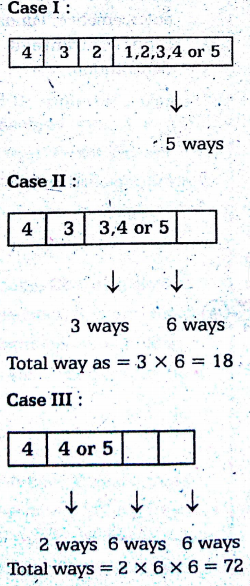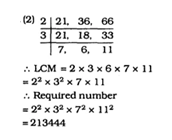Digitization help student to explore and study their academic courses online, as this gives them flexibility and scheduling their learning at their convenience. Kidsfront has prepared unique course material of Quantitative Aptitude Numbers Operations for SSC SI CAPF Exam student. This free online Quantitative Aptitude study material for SSC SI CAPF Exam will help students in learning and doing practice on Numbers Operations topic of SSC SI CAPF Exam Quantitative Aptitude. The study material on Numbers Operations, help SSC SI CAPF Exam Quantitative Aptitude students to learn every aspect of Numbers Operations and prepare themselves for exams by doing online test exercise for Numbers Operations, as their study progresses in class. Kidsfront provide unique pattern of learning Quantitative Aptitude with free online comprehensive study material and loads of SSC SI CAPF Exam Quantitative Aptitude Numbers Operations exercise prepared by the highly professionals team. Students can understand Numbers Operations concept easily and consolidate their learning by doing practice test on Numbers Operations regularly till they excel in Quantitative Aptitude Numbers Operations.
 When 1 is added to 13/15 th part of 7/8 then it is equal to n-th part of 13/7. Then n =
When 1 is added to 13/15 th part of 7/8 then it is equal to n-th part of 13/7. Then n = Correct Answer Is : 1560/1477
Correct Answer Is : 1560/1477 The smallest positive integer n with 24 divisors, considering 1 and n as divisors, is
The smallest positive integer n with 24 divisors, considering 1 and n as divisors, is Correct Answer Is : 360
Correct Answer Is : 360 A fraction is such that when 5 is added to the numerator then its value is 1, again when 6 is added to the denominator then the value is 1/2. The fraction is
A fraction is such that when 5 is added to the numerator then its value is 1, again when 6 is added to the denominator then the value is 1/2. The fraction is Correct Answer Is : 11/16
Correct Answer Is : 11/16 The two sequences 1, 4, 16, 64, _________ and 5, 20, 80, 320, ______.. Are used to form a new sequence as follows :
The two sequences 1, 4, 16, 64, _________ and 5, 20, 80, 320, ______.. Are used to form a new sequence as follows : Correct Answer Is : 1310720
Correct Answer Is : 1310720 The number of four-digit numbers greater than or equal to 4321 that can be formed from the digits 0, 1, 2, 3, 4, 5, allowing for repetition of digits is
The number of four-digit numbers greater than or equal to 4321 that can be formed from the digits 0, 1, 2, 3, 4, 5, allowing for repetition of digits is Correct Answer Is : 311
Correct Answer Is : 311
 If the numbers divisible by 3 between 14 and 55 (both inclusive) and the numbers with 3 at unit`s place of them are removed then how may numbers will remain?
If the numbers divisible by 3 between 14 and 55 (both inclusive) and the numbers with 3 at unit`s place of them are removed then how may numbers will remain? Correct Answer Is : 25
Correct Answer Is : 25 A number when divided by three consecutive number 9, 11, 13 leaves the remainders 8, 9 and 8 respectively. If the order of divisions is revered, the remainders will be---
A number when divided by three consecutive number 9, 11, 13 leaves the remainders 8, 9 and 8 respectively. If the order of divisions is revered, the remainders will be--- Correct Answer Is : 8, 9, 8
Correct Answer Is : 8, 9, 8 If 3/4 of a number is 7 more then 1/6 of the number, then 5/3 of the number is
If 3/4 of a number is 7 more then 1/6 of the number, then 5/3 of the number is Correct Answer Is : 20
Correct Answer Is : 20 If the cube root of 79507 is 43, then the value of ∛79.507 + ∛0.079507 + ∛0.000079507 is
If the cube root of 79507 is 43, then the value of ∛79.507 + ∛0.079507 + ∛0.000079507 is Correct Answer Is : 4.773
Correct Answer Is : 4.773 The least positive integer which is a perfect square and also divisible by each of 21, 36 and 66 is :
The least positive integer which is a perfect square and also divisible by each of 21, 36 and 66 is : Correct Answer Is : 213444
Correct Answer Is : 213444